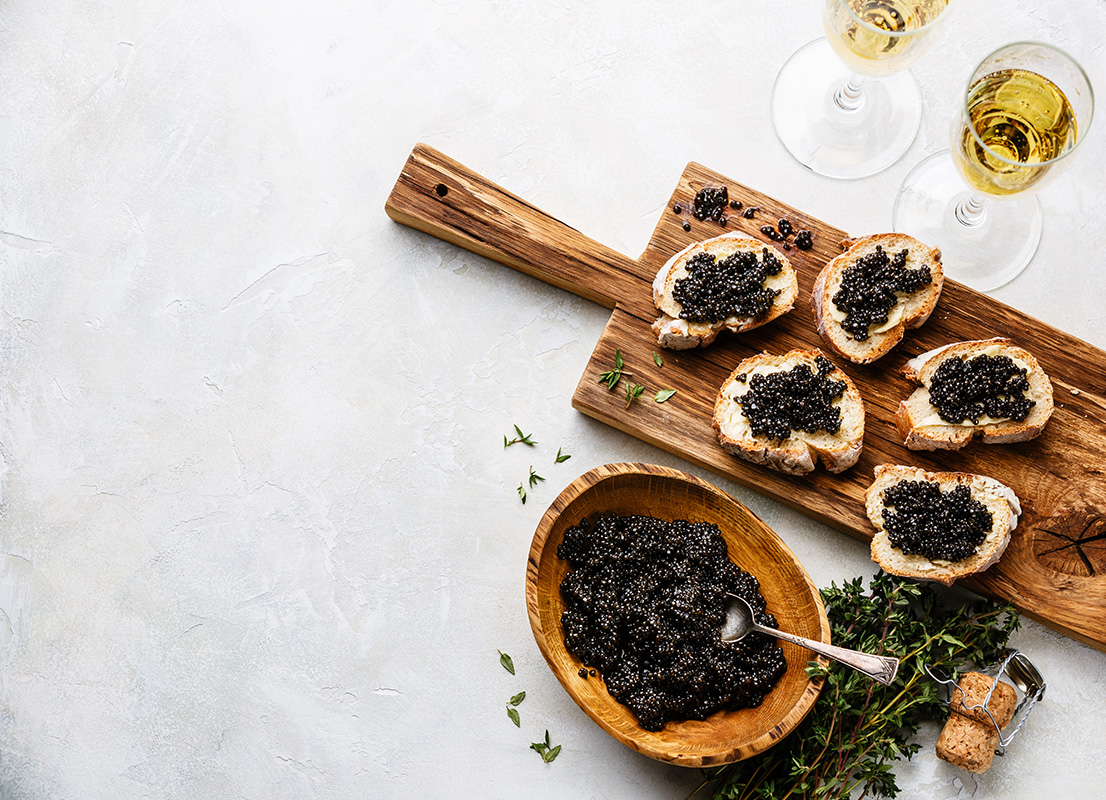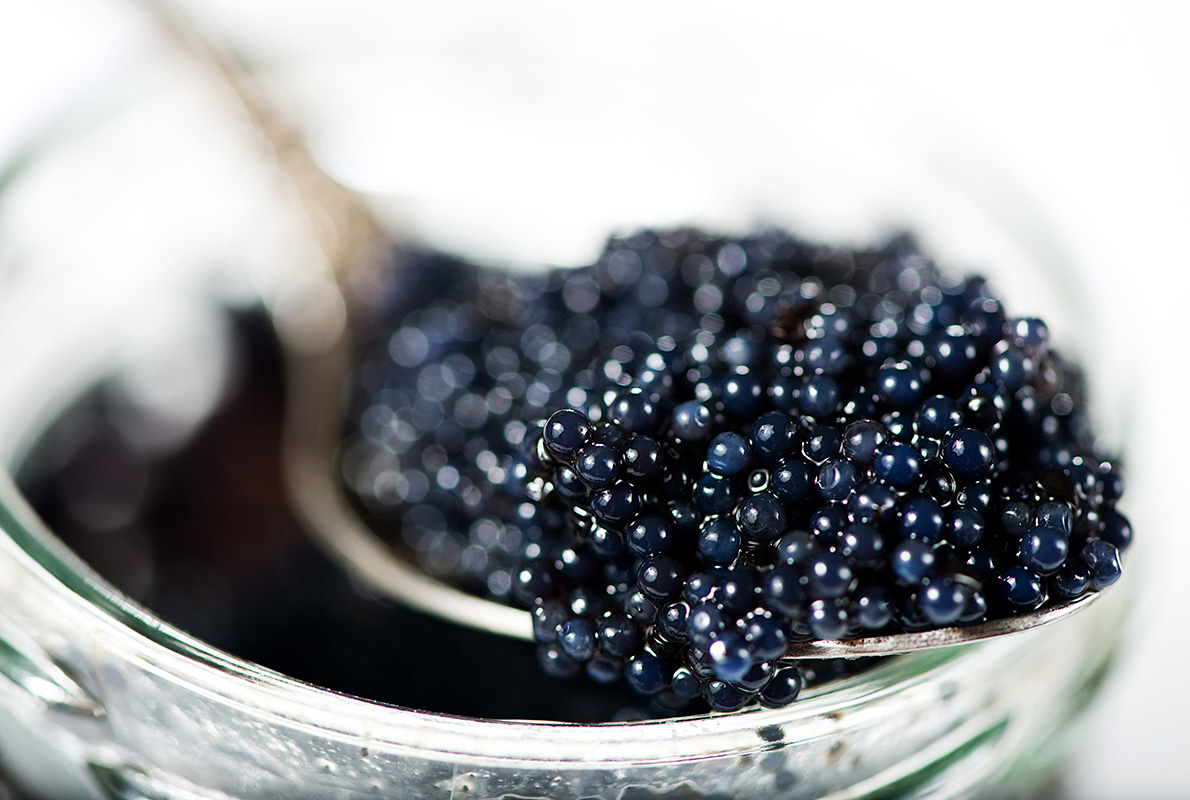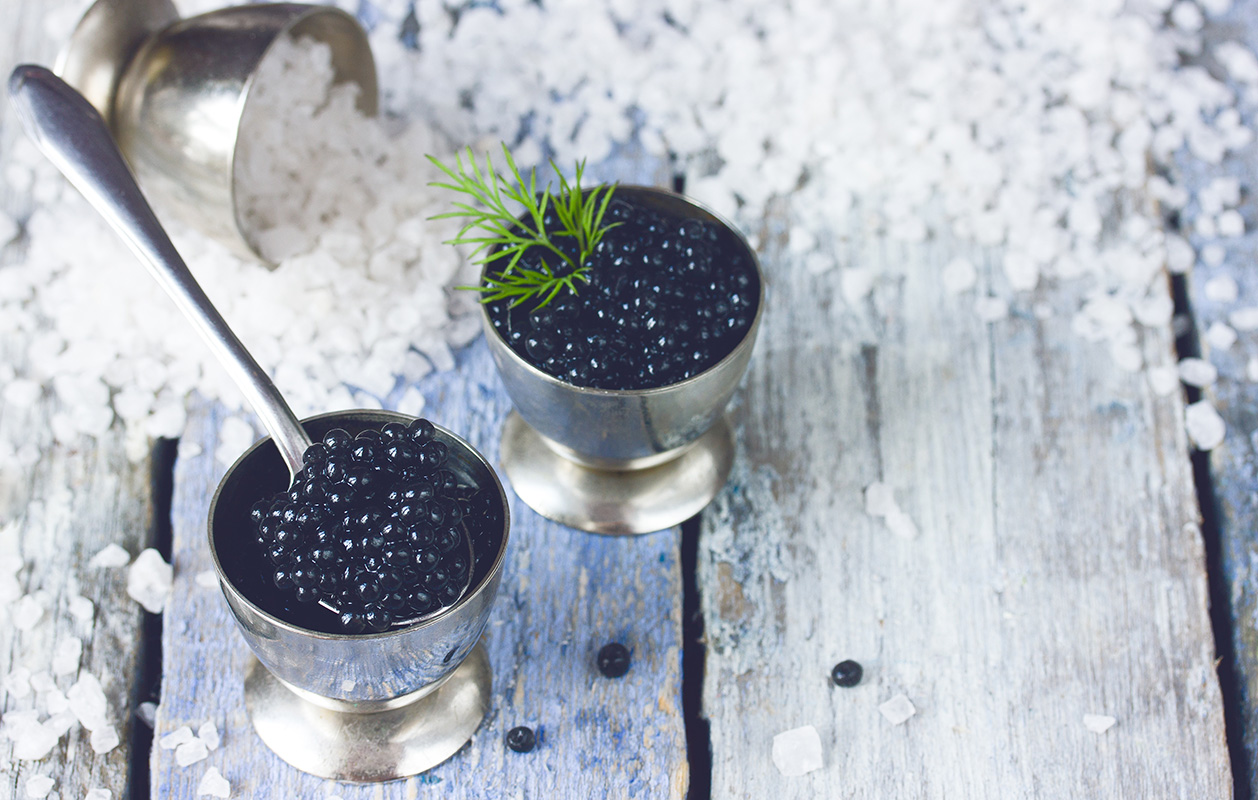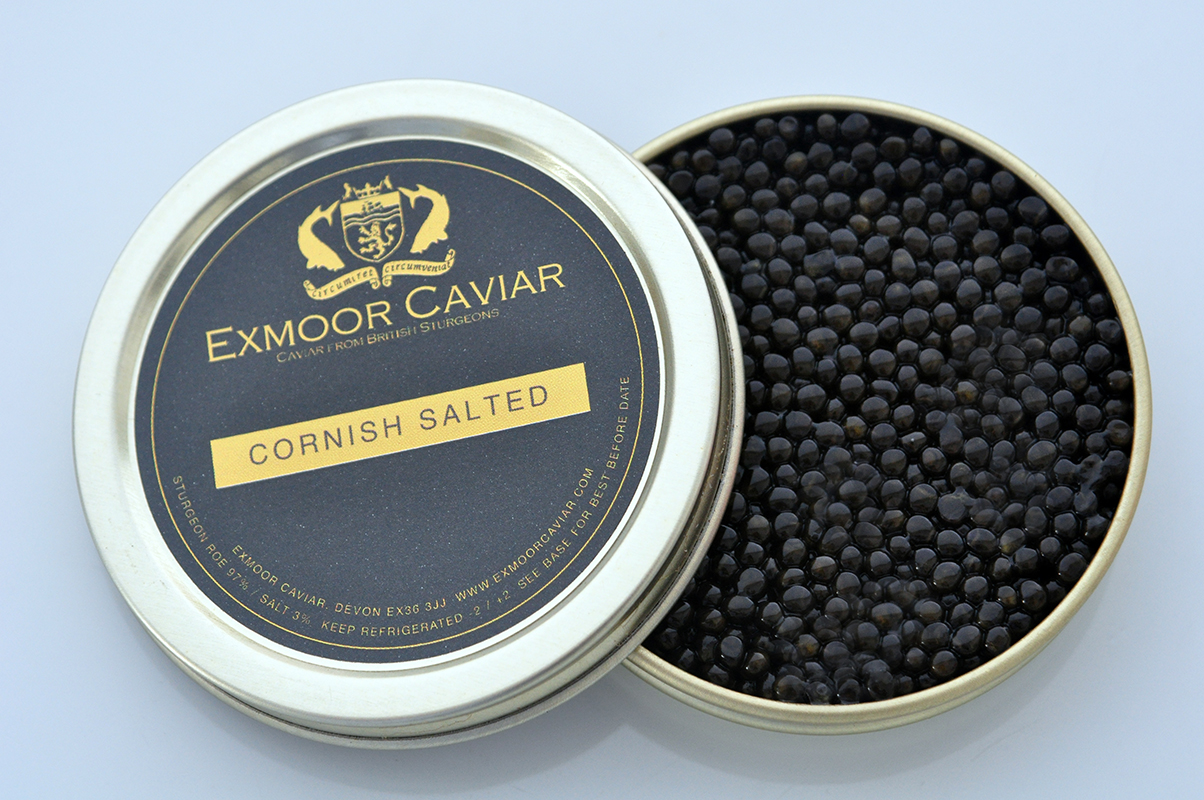This website uses cookies so that we can provide you with the best user experience possible. Cookie information is stored in your browser and performs functions such as recognising you when you return to our website and helping our team to understand which sections of the website you find most interesting and useful.
Exmoor Caviar shares the secrets to producing this indulgent delicacy
By Nick Hammond | 14 September 2017 | Food & Drink
Tempus travelled to Exmoor, Devon, to meet with Britain’s only producer of fine caviar

In a quiet corner of Devon, prehistoric fish swim slowly through stream-fed water tanks. It’s a patient existence; these mighty leviathans, up to six feet in length and weighing 50lbs, may take up to 10 years to reach maturity. And when they do, they are harvested – not for their meat, although this is smoked in meaty slabs; these are the mighty sturgeon fish and caviar is their bounty.
“It’s been a long, hard road,” said Harry Ferguson of Exmoor Caviar. “But we’ve always believed it could be done. We’re producing world-class caviar right here in Devon.” In a seemingly hare-brained scheme hatched by business owner Ken Benning several years ago, a secluded former trout farm was bought, along with the first sturgeon stocks. While the River Mole isn’t the deep cool waters of the Caspian Sea, it does offer a clean, crisp, chalk spring surge. Exmoor Caviar has a licence to use these waters – and the results are a stunningly creamy caviar on the palate.
From October to April, sturgeon which have ‘come of age’ are removed from their tanks and knocked on the head. The huge sacs of roe – up to 12% of the fish’s biomass at this stage – are carefully removed, rinsed, lightly salted with Cornish Sea Salt and some 20 minutes later, are ready for spooning into tins. Caviar simply doesn’t come any fresher. The results are being noticed.

“Chefs love it,” said Harry as we grabbed a coffee in West London before he heads off to personally deliver more precious pearls to an ever-growing clientele of discerning chefs. He’s the operations director for Exmoor Caviar, which is now served in a host of Michelin-starred restaurants including The Fat Duck, The Ledbury and Le Manoir. A few years back, no less than 45 of the world’s leading chefs tasted Exmoor Caviar at a special event in Old Billingsgate Market – and unanimously voted it the best on offer.
“More than 50 million litres of water from the River Mole flow through our tanks each day," he added. " That in turn has leached through the shale and sandstone around here and is fed by pure Exmoor spring water. It gives our caviar its unique mineral hit, flavoured only very lightly with sea salt.”
Just a little fine salt is added to act as both a preservative and to impart the delicious saline hit that leaves you craving more. Exmoor Caviar claims everything it does can be traced back to the host fish, with strict quality and species control and protection guidelines scrupulously observed. When you buy a tin of these glistening black pearls, you can be assured of getting the real deal.

There are numerous ways to enjoy the delicacy – a personal favourite is the simplest and easiest; it’s funny how often this is the case with great food, especially seafood. A small spoonful of caviar carefully placed on the back of the hand at the junction of thumb and first finger is the best way to appreciate the essence of the eggs. Apparently, this little spot of the body has very few sweat glands – and so is the least likely to impart your own particular flavour. And purists insist that a stainless-steel spoon is a no-no as the metal can affect the flavour of the delicate fish eggs. Instead, one should use a mother of pearl spoon.
However you manage it, an epicurean slurp of caviar from your hand is theatrical, decadent and, as long as your caviar is good, entirely memorable. Well-made caviar should have a slight resistance in each pearl. When burst, they spill oily flavour across the palate. It’s easy to see why this sensual luxury food stole the hearts of the great and the good, and the extraordinary lengths that go into its production also explain its hefty price tag – a tiny 10g tin of Exmoor Caviar is priced at £19.95.
But when paired with an icy vodka or a frothing glass of champagne, caviar is a treat to savour. Close your eyes, hear the babble of a Devonian river with the lonely mew of a buzzard overhead and you’re tasting a little slice of England.
Read Tempus Magazine now for more luxury news, reviews and interviews








